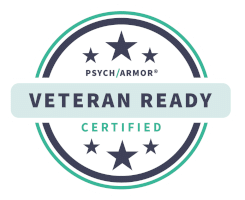As we celebrate Mental Health Month, we are continuing to look at ways to help our mind and body. One way is to strike a work-life balance. Finding a balance between work and life can be challenging. The constant demands we place on ourselves to work harder and longer can take a toll on our physical and mental health. Of US adults employed full time, nearly 40% reported working at least 50 hours per week, and 18% work 60 hours or more.
While companies are offering more flexible schedules that allow employees to be away from the office, there are still other obstacles that contribute to the unbalance. Technology has opened the door for a constant connection to work, interrupting home life at any given moment. And for those with children, the work-life balance can prove even more difficult as over 60% of first-time mothers return to work just 12 weeks after giving birth.
What is the risk of an unbalance?
Studies show that we are working harder and longer and sleeping less. But getting in a full night’s rest isn’t the only problem that can come from an unbalanced work and home life.
- Poor Health: An unbalanced work life and home life can cause numerous health consequences such as sleep and digestive issues, anxiety, and stress. You are also at a greater risk for depression, strokes, and heart disease. And as individuals become more unbalanced they often turn to drugs and alcohol to cope with the additional stress.
- Social Disconnection: When we spend most of our time working, we may be missing out on important events and milestones. Social disconnect with our friends and family can leave us feeling isolated and can harm relationships.
- Increased Expectations: Working extra hours may be great financially and can help you climb the ladder, but that extra time may also increase your responsibility, leading to additional challenges.
How do I achieve a work-life balance?
When we have a work-life balance, we feel more satisfied with our job and our overall life. Individuals who are able to balance a busy work schedule and their daily activities often have fewer symptoms of depression and anxiety. But how do you do it? We all know there are ways to set limits and prioritize, but here are a few ideas that may help.
- Manage Time: Cut out activities that you don’t enjoy or that you don’t have time for. Organize household tasks efficiently, such as doing laundry daily instead of all in one day. Share concerns and solutions regarding extra hours with your employer. Remember – do what needs to be done and don’t worry about the rest.
- Make a List: Put weekly events for home life on a calendar and keep a to-do list. When you plan you stay focused and it is easier to stick to what is already a priority for you.
- Learn to Say No: It doesn’t matter if you are being asked to lead an extra project or work, or lead the bake sale at school – remember it is okay to say no. We often add to our plate because we feel guilty, but when you say no then you are giving yourself time to enjoy activities that are more meaningful to you.
- Leave Work at Work: With technology we can connect at any time, eliminating the boundary between work and home. Make a conscious decision to separate the two and be in the moment.
- Reduce Email Access: Limit checking emails to three times a day – late morning, early afternoon, and late in the day. This allows you to focus on your needs and the tasks at hand.
How do I eliminate my stress?
One of the most important things we can do to help eliminate or reduce stress is to take care of ourselves. When we are on the go at a frantic pace, we tend to forget how important self-care can be physically and mentally. Remember these tips when you are feeling stressed.
- Eat a Healthy Diet: Poor nutrition can lead to depression and sleep issues. By adding fruits, vegetables, and lean protein to your plate, you can retain knowledge and increase stamina.
- Get Enough Sleep: More than two-thirds of employees say their sleep is negatively affected by workplace issues. Letting your body rest is essential for your overall well-being. It is also important to avoid using personal electronic devices at bedtime, as the blue light from these devices decreases the level of melatonin, the sleep hormone.
- Make Time for Fun: Make yourself a priority by setting time aside every day for an activity you enjoy. Discover new activities with friends and family.
- Form a Support System: At work or at home, a support system is vital to your well-being. Work with colleagues to help you when conflicts arise. At home, lean on family and friends to help with responsibilities when you need an extra hand.
It is important to remember that we get run down both physically and mentally and we all need help from time to time. Creating a work-life balance is a process, and we need to examine our priorities from time to time and make changes when necessary. Finding the balance between work and home can help you improve and focus on your mind and body.





